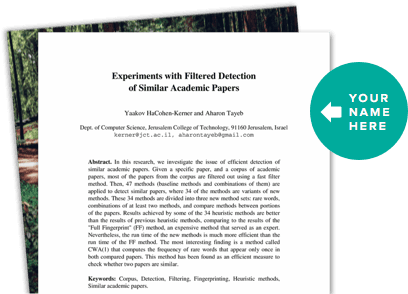About This Project
In developing countries such as Benin, urban wastewater (UWW) treatment is unfortunately not a major concern, and the rivers running through the various cities are real vehicles for solid and liquid waste. The objective of this project is to assess the impact of UWW on macroinvertebrates (MIB) in the Ouémé Rivers using conventional techniques and DNA metabarcoding throught with several metrics and an acute toxicity .
Ask the Scientists
Join The DiscussionWhat is the context of this research?
Macroinvertebrates (MIB) are widely used to assess the quality of aquatic environments. Several constraints limit the use of MIB in Africa, where the available knowledge of the fauna is very limited. In recent years, the development of metabarcoding approaches and their importance have led to their use for practical assessment of the status of aquatic ecosystems. But, its application in West Africa (WA) has not been explored. This work will assess the impact of urban wastewater on MIB, as revealed by the metabarcoding. A comparison of traditional bioindication and molecular methods will enable us to propose the best diagnostic methods for Benin and WA in general.
What is the significance of this project?
This research will, on the one hand, reveal to the government of Benin and to local authorities and citizens the problem associated with the discharge of urban wastewater into rivers. And on the other hand, results of this project with the establishment of an adapted sampling protocol and the elaboration of bioindicators will help to the development of a monitoring program to reduce contamination and their consequences on ecosystems and on the health of local populations. This study will ensure access for all to water and sanitation and ensure sustainable management of water resources (SDG6), to establish patterns of consumption and sustainable production (SDG12), promote the life of biodiversity on earth and promote responsible and sustainable consumption and production.
What are the goals of the project?
The main objective of the project is to assess the impact of urban wastewater (UWW) on the macroinvertebrate (MIB) in the rivers of the Ouémé basin (ROB). Specifically, the aim is to: characterize the physical, chemical and bacteriological compositions of UWW from different cities; determine the effect of UWW on the physicochemical characteristics of the water in the ROB; determine the effects of UWW on the MIB community using conventional techniques and DNA metabarcoding and to test the relative sensitivity of species using laboratory toxicological test. The characterisation of the UWW as a function of urbanisation, supported by the International Foundation for Sciences (IFS 2022) has been completed, but data collection to achieve the other objectives must begin between May/June 2024.
Budget
Digital Camera is needed to take pictures of field observations and characterize stations. GPS and accessories will be used to georeference stations and sampling sites. Zoom Stereo Microscope w Dual Halogen lights and Camera will be used to identification and counting of macroinvertebrates. Water collection Kit will be used to collect and preserve water. Multiparameter Colorimeter and reagent sets is needed to run high quality chemical parameter tests. Multiparameter Waterproof Meter is needed to measure pH, ORP, EC, TDS, resistivity, dissolved oxygen and temperature for detecting environmental disturbances. Macroinvertebrates study Kit will be used to preserve macroinvertebrates collected and needed to collect, sort and identify macroinvertebrates. Budget items travel (trip and Lodging) Concerns the travel, meals and accommodation of the researcher with a field maneuver which are essential to successfully carry out the exploration and data collection
Endorsed by
 Project Timeline
Project Timeline
Over two years, in dry and rainy seasons, the project will focus on collecting data on the effect of UWW on MIB, using conventional techniques and DNA metabarcoding. During the same period, ecotoxicological tests will be carried out to validate the sensitivity of MIB. Data processing and manuscript writing will be automated. At the end of the project, the deliverables are expected: one (1) final project implementation report; 3 master's theses; 6 bachelor's theses and 9 scientific articles.
Mar 01, 2024
Characterization of the physical, chemical and bacteriological composition of UWW in different cities
May 01, 2024
Project Launched
Apr 01, 2026
Determining the effects of UWW on river water quality
Apr 01, 2026
Evaluation of the toxicity of UWW on the relative sensitivity of macroinvertebrates
Apr 01, 2026
Determination of the effects of urban wastewater on the macroinvertebrate community using the classical method and the environmental DNA method
Meet the Team
Affiliates
Team Bio
Collaborating with Pr. Christophe PISCART from ECOBIO in Rennes and researchers from the Laboratoire d'Environnement et de Biologie Aquatique at NANGUI ABROGOUA University (Côte d'Ivoire), their experience, expertise and support will be of great use in the successful completion of this project. Pr. PISCART's connections will enable this project to be carried out smoothly and efficiently. The members of our research unit will be at our service during data collection and various tasks involved.
Abahi Koudjode Simon
I am currently a researcher and at the University of Parakou (Benin). My research focuses on the ecology of macroinvertebrates in Beninese freshwater, biomonitoring and the impact of urbanization and human activities (industrial, agricultural and domestic) on Benin's freshwater ecosystems. I'm also interested in environmental sanitation by reusing waste (organic and animal) in aquaculture and using metabarcoding in biomonitoring. As a researcher in the laboratory, I have gained experience in collecting, analyzing and interpreting data and results on biomonitoring and biodiversity. The various results of my work are promoted through scientific publications in international journals.
Lab Notes
Nothing posted yet.
Additional Information
The purpose of this study is to assess the impact of urban wastewater on the biodiversity of macroinvertebrates in the Ouémé Basin in Benin. The choice of this study is based on the fact that water and biodiversity are subject to disturbances from urban wastewater. The first goals of the project will be to evaluate the effects of these disturbances on the macroinvertebrate community and test the acute toxicity of contaminants on the orders of pollutant-sensitive macroinvertebrates. To this end, twelve monthly sampling campaigns will be carried out to in streams impacted by cities of various sizes according to the number of inhabitants (small, middle size and big cities). On each stream, two stations will be located near the city, one station upstream and considered as a control station and a second station downstream and impacted by urban wastewater. These samples, which will be taken using DNA metabarcoding and the conventional method, will highlight the impact of urban wastewater on macroinvertebrate communities. The results will also allow to develop a multimetric index for biomonitoring (Mondy et al., 2012) using control stations as Least Impacted River Reaches (LIRRs) often located in rural zones with low population density to severely Impacted River Reaches (sIRRs) often located in more urbanized areas. The second goal of this study will be to develop knowledge on the relative sensitivity of African macroinvertebrate species to urban effluents. To achieve this goal, we will perform acute toxicity tests with macroinvertebrate species to evaluate their relative sensitivity to various types of pollution.
Project Backers
- 0Backers
- 0%Funded
- $0Total Donations
- $0Average Donation



